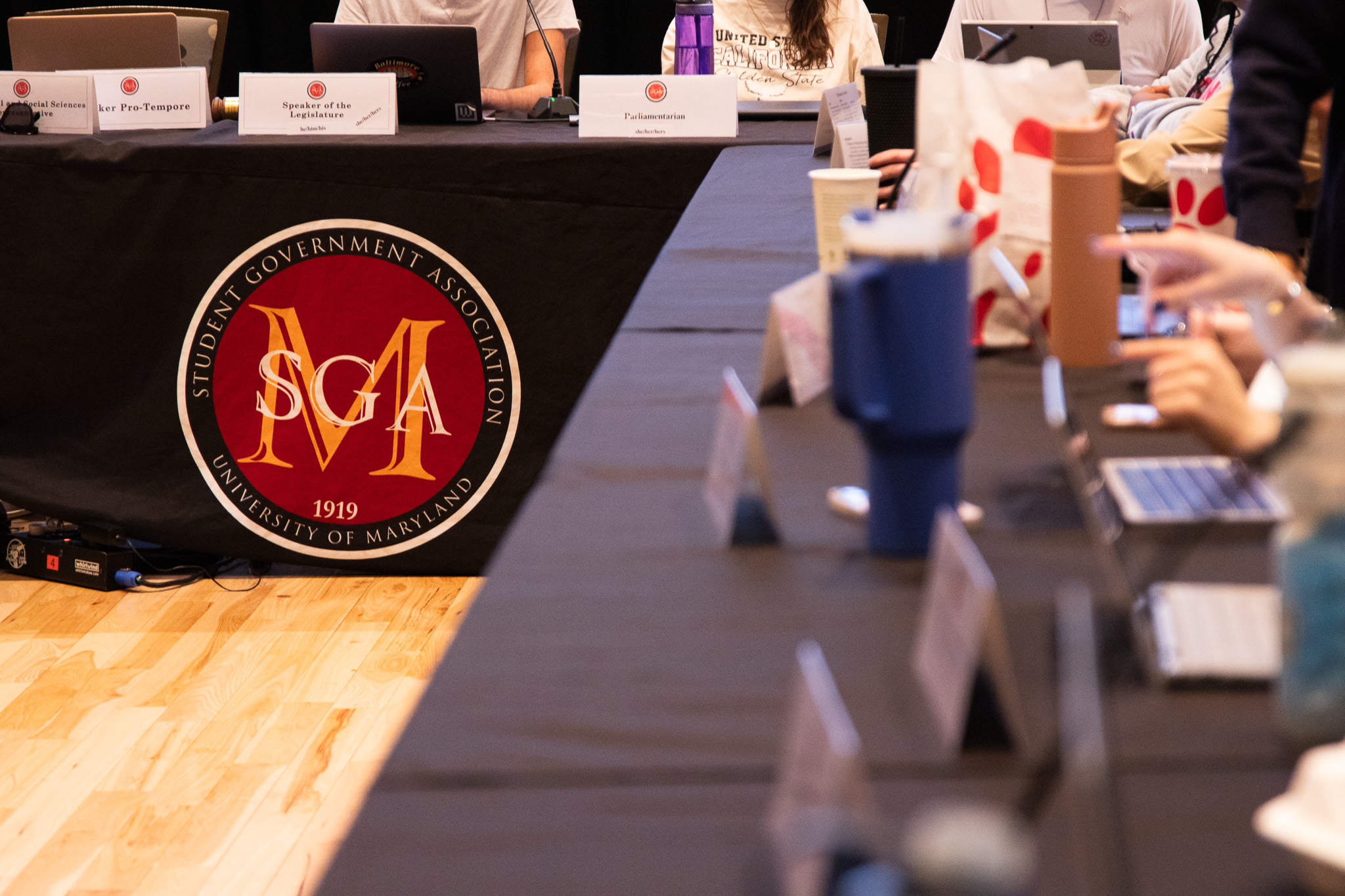The University of Maryland SGA worked on many projects this past school year, focusing on issues such as student fees, food options in dining halls, mental health and more.
Here are some of the Student Government Association’s main accomplishments this year.
Increased student activity fees
In the 2024 election ballot, the SGA included a referendum asking students about increasing the student activities fee. After a majority vote in favor of raising the fee, the SGA increased student fees by $3 and $6, for part-time and full-time students, respectively.
This fee will help the SGA avoid cutting the budget for student group funding in the future, The Diamondback previously reported.
“We’ve been working off of a COVID surplus from when there weren’t many student activities taking place on campus,” Eliav Hamburger, the former speaker and a junior computer engineering major, said. “That coupled with inflation has essentially wiped out all of our student activities fee reserves.”
[UMD SGA updates committee voting requirements after hours of debate]
Diverse dining options
The SGA has advocated to increase kosher and halal dining options on campus, according to Evren Yucekus-Kissane, the former chief of staff and a junior computer science major.
The SGA worked to allow Hillel dining plans to include dining dollars. The organization is also advocating for a kosher kitchen in one of the dining halls to increase access for Jewish students.
About 19 percent of undergraduate students at this university are Jewish, according to Hillel. Some kosher guidelines, such as not consuming or preparing meat or dairy together, prevents some students from eating at dining halls, The Diamondback reported.
In August 2023, 251 North Dining Hall added this university’s first-ever halal food station, The Diamondback reported last fall. The food is cooked and prepared on surfaces dedicated solely to halal foods, separate from equipment used by non-halal food.
Mental health projects
The SGA also advocated for the establishment of the Mental Health Emergency Assessment and Response Team in collaboration with university administration and the counseling center.
The efforts worked to ensure students experiencing mental health crises could be transported to the hospital without handcuffs.
“If a student is in mental health crises, it can be really traumatizing again to be put through an experience where you are handcuffed and transported to the hospital,” Alexandra DeBus, the outgoing SGA president and a senior biochemistry major, said.
[More than 70% of electable SGA legislative positions are filled by appointment]
Key Legacy Assessment Board
The SGA’s Key Legacy Assessment Board continues to investigate the legacy of Francis Scott Key — the Marylander who wrote “The Star-Spangled Banner” — and determine whether Francis Scott Key Hall should be renamed.
The issue revolves around Key’s founding of the American Colonization Society, which supported the migration of free, Black Americans from the United States to an African colony — now known as Liberia — in the 1800s, The Diamondback previously reported.
The board recently presented its proposal at the cabinet-to-cabinet event, which included university president Darryll Pines, according to Muntaha Haq, the former director of diversity, equity and inclusion.
“The Key Legacy Assessment Board is consistently evaluating the renaming process to understand the logistical and figurative implications of having Francis Scott Key maintain his legacy here at [this university],” Haq, a senior international business major, said.
Stamp Student Union mural project
The SGA’s transportation and infrastructure committee proposed a mural project for Stamp Student Union in April, The Diamondback previously reported. The mural would be designed around a specific annual theme based on student submissions.
Reese Artero, the recently inaugurated student body president, worked heavily on this initiative as an off-campus neighboring representative.
“We’d love to start with Stamp and see a little bit of a competition for students to get them involved … and have them have the opportunity to have somewhat of a legacy at the university where they’re able to showcase a memorial of their art and memorial of their time at the university,” Artero, a junior criminology and criminal justice major, said.



